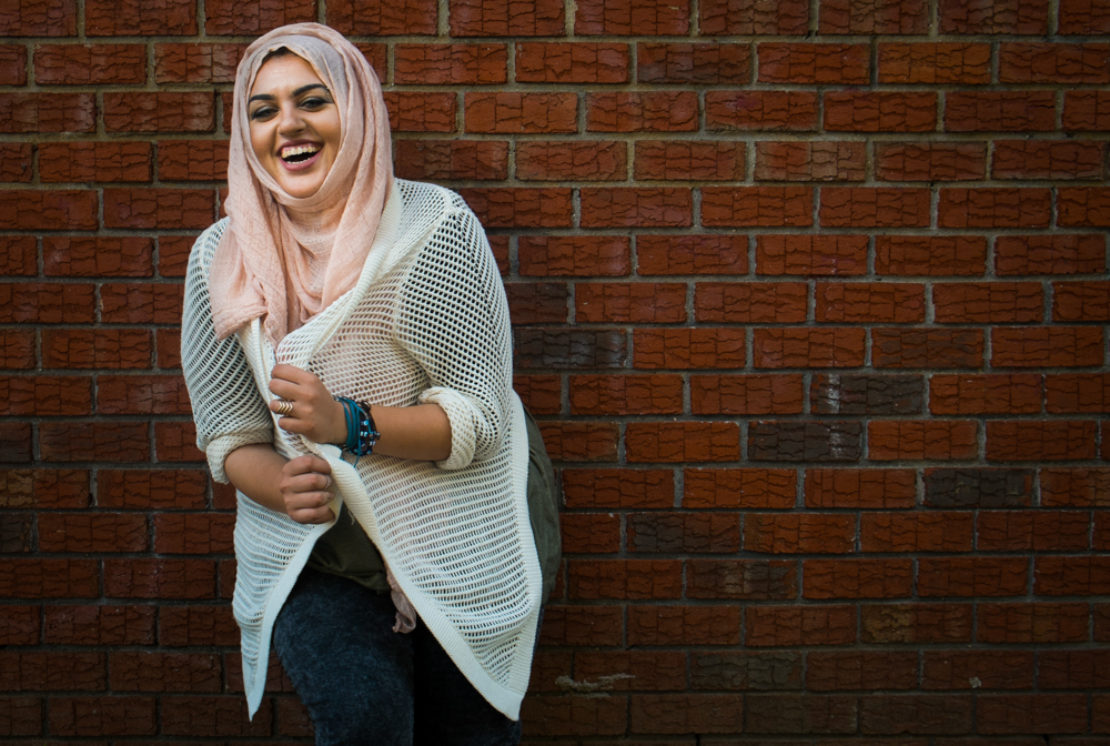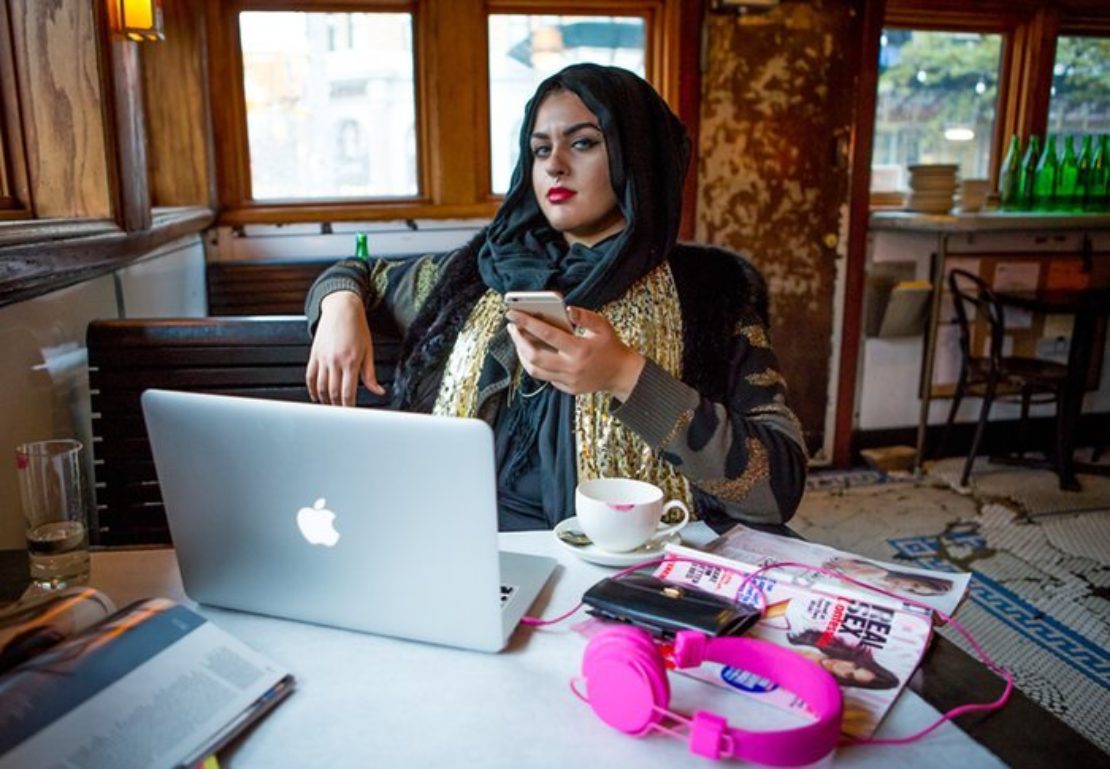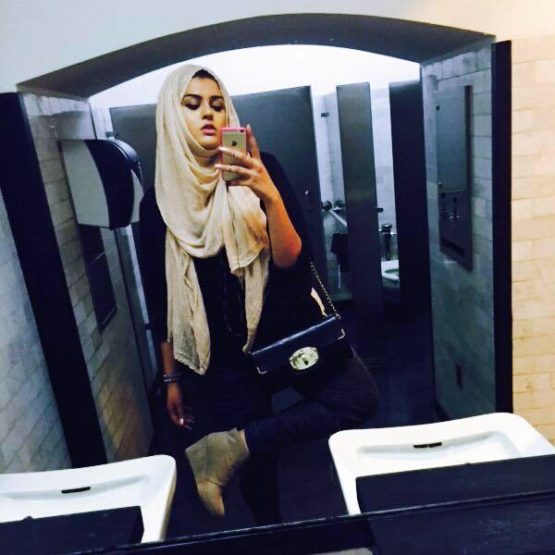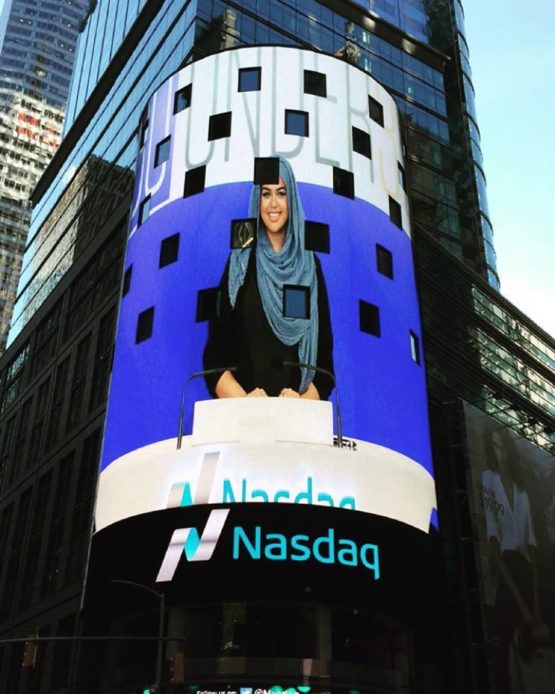
Amani al-Khatahtbeh is talking back for young Muslim women
Amani al-Khatahtbeh was a 17-year-old high school student living with her parents in New Jersey when she decided to start her blog, MuslimGirl, in 2009. Fast-forward seven years and that blog – which was "just a hobby" – has moved out of her teenage bedroom and into an office in New York where 10 editors and 50 writers (managed digitally across the world) work every day on what is now America's leading website for Muslim women.
Although clearly driven and talented, Amani wasn't necessarily one of those millennial teenagers with a masterplan. Rather, she explains, MuslimGirl was born out of necessity, out of the need to belong. "I felt very alienated, very torn from society," she tells me over Skype from her office. "Back then, I couldn't find any space online where I could connect with other young Muslim women to discuss topics that we actually felt were relevant to our own lives. Everything online at the time was all very focused on jurisprudence – on what is okay to do in Islam, what is wrong to do in Islam. Things that young girls really aren't interested in talking about. We wanted to discuss how to combat bullying in school, cool ways to wrap our headscarves, what to do when you get your period."
Amani came of age in a post-9/11 world and unsurprisingly, despite being barely 10 years old at the time, that day's events would play a significant part in shaping both her identity and her relationship with the society she grew up in.
I couldn't find any space online where I could connect with other young Muslim women to discuss topics relevant to our own lives
"We were that generation of little girls that experienced 9/11 before we even hit puberty," she says. "Yet that's who we are. People ask me all the time why I called the site MuslimGirl and not MuslimWoman and I think it's for that reason: it's when we're girls that these transformative moments take place. That's when we're shaped into who we become as women, as human beings."
If MuslimGirl was started as a way for high school girls to connect with one another and share experiences, it has now evolved into something far more all-encompassing for young Muslim women across the world. The subjects covered range from fashion to faith, with articles on everything from reports on the presidential campaign to opinion pieces about sexual harassment.
Explore
"We're not green because some bloke in marketing told us it was a good idea" Laser guided strategies"It's about how to survive as a young Muslim woman trying to navigate a society where you're under attack constantly for your religion," Amani says. "Every time we, as Muslim women, are spoken about, it's never in our own voices. When we are represented in the media, or when our opinions are being put forth, it is rarely coming from us. That's really the core of what the website's about: reclaiming our narratives, our identity and the way we put ourselves forward to the world."
Indeed, the site's strapline – "Muslim women talk back" – couldn't be plainer.
While Amani is helping to challenge and change perceptions of Muslim women with her website, she is also a pioneering figure in an industry where women have not always had the warmest welcome, and in which veiled women are even more of a rarity. "You don't see women of colour in the tech world too often," she says. "That's extraordinary for us, as is the recognition we're receiving for our work."
Every time we, as Muslim women, are spoken about, it's never in our own voices. When we are represented in the media it is rarely coming from us



It might be hard to believe given the figures – MuslimGirl is averaging one million unique users a month – but Amani only started working on the site full time in the last year, and up until now it has been a volunteer initiative. Since devoting all her time to the website (after graduating from Rutgers university in 2014, Amani, like most others her age, worked on the site around a nine-to-five), Amani has seen readership of MuslimGirl in the Middle East increase by 500 per cent. Non-Muslim readership has grown significantly, too.
"The response has been overwhelmingly positive and I am so grateful for how supportive the Muslim American community has been, but also for the way MuslimGirl has been received by the non-Muslim public. For a lot of non-Muslims they are able to find something in MuslimGirl that they can relate to, and they're seeing a different face to Islam than the one that is often shoved down people's throats."
And that's why, as Amani says, MuslimGirl is more than just a tech initiative. It's about changing the image and stereotype surrounding "Muslim women, the Muslim people and of Islam," she says. "We want to show that we're not a monolith, that our community is made up of diverse experiences and opinions, and that in so doing we might be able to have an actual impact on policies."
Did Amani ever imagine that a blog she started in her bedroom as a teenager would not only be read by people all over the world, but would become her bread and butter? "I always hoped and dreamed that what I would do with my life would have to do with changing people's perceptions about Islam and the Muslim people, but I don't know that I ever imagined it would all be due to something that I started when I was 17 years old," Amani says. "I think that's the biggest thing to surprise me in all of this."